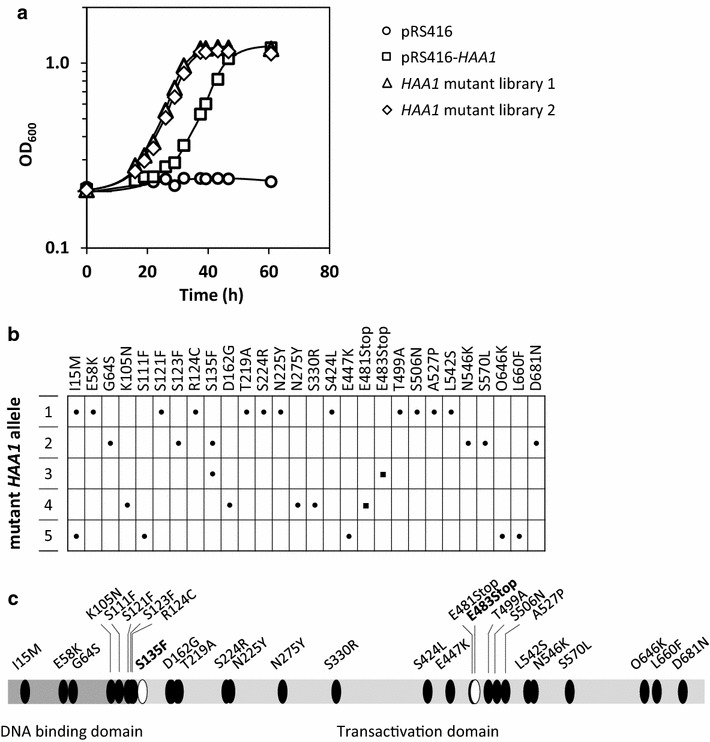Fig. 2.

Selection of mutant HAA1 alleles with improved tolerance to acetic acid. a Growth performance of two parallel cultures of an HAA1 mutant library during the fourth round of enrichment in synthetic medium containing 200 mM acetic acid (pH 4.5) is shown. First, a CEN/ARS plasmid-based HAA1 mutant library was generated by means of error-prone PCR and recombinatorial cloning in the S. cerevisiae strain CEN.PK113-13D haa1Δ. Two aliquots of the library were then cultivated under non-stress conditions until exponential growth phase, after which the cells were transferred to synthetic medium containing 200 mM acetic acid (pH 4.5). This procedure of alternating non-stress and acetic acid stress conditions was repeated four times. For comparison, cells of an isogenic strain containing the wild-type HAA1 allele cloned in the same plasmid backbone (pRS416-HAA1) were subjected to the same enrichment procedure, and the growth performance in acetic acid containing medium during the fourth round of enrichment is shown as well. The strain CEN.PK113-13D haa1Δ containing the empty plasmid (pRS416) was always included as a control. b Modifications in protein sequence deduced from five non-redundant mutant HAA1 alleles isolated from the enriched library cultures that significantly improved acetic acid tolerance. c Relative position of the identified mutations in the Haa1 DNA binding and transactivation domains
